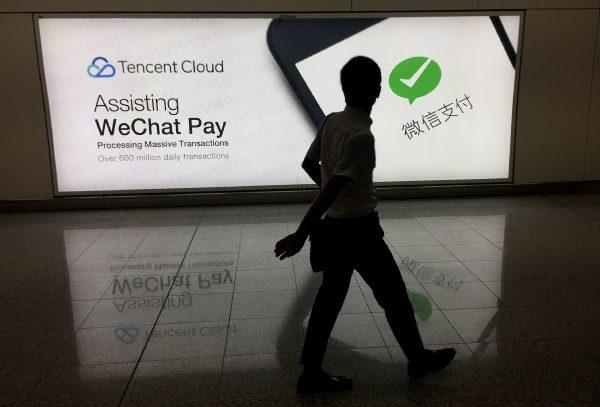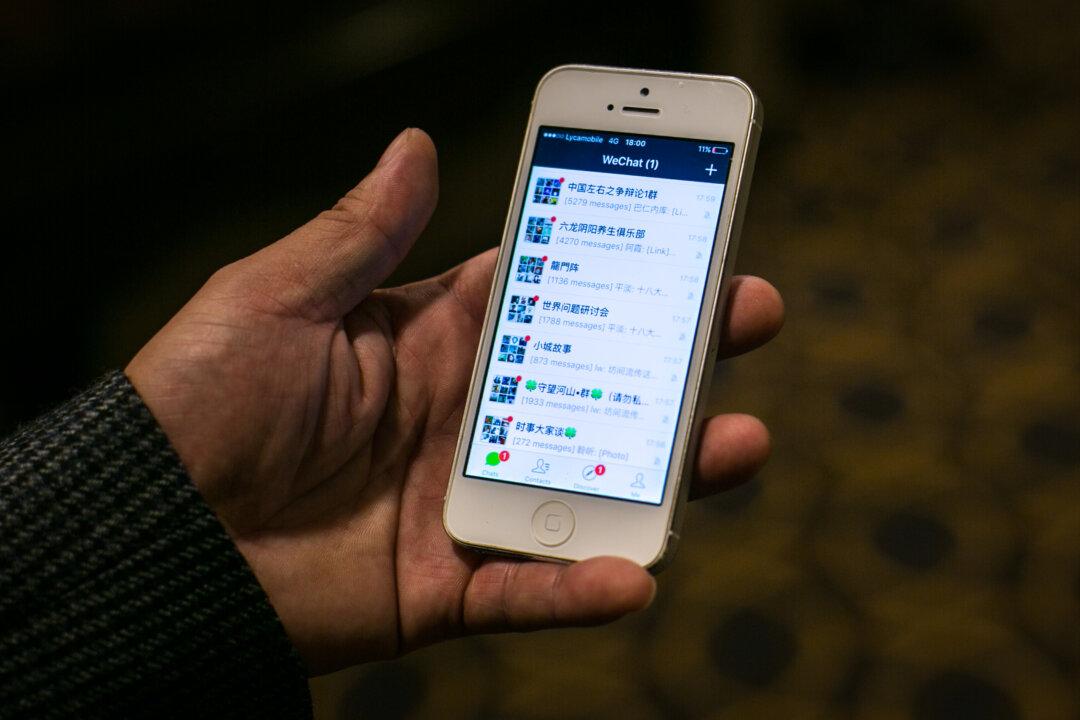More evidence has emerged to support the widely held suspicion that China’s most popular messaging app, WeChat, is recording private messages between users, data which is then accessible by the Chinese regime, despite the app’s insistence that it is not spying on the 1 billion people worldwide who use it.
In a WeChat public post first published on April 28, the anti-corruption taskforce of Chaohu, a small city in China’s Anhui Province, boasted that it had made a breakthrough in an investigation of a corruption case by “retrieving” relevant WeChat messages that had been deleted on a suspect’s phone.
“The Chaohu Municipal Discipline Inspection and Supervision Commission in March retrieved a series of deleted WeChat chat messages from a suspect, hence enabling investigators to be more adaptive in the interrogations and allowed progress to be made in completing the investigation,” the now-deleted post said.
The post is a rare admission by the Chinese regime’s judicial agency that it could access private WeChat messages even after users have deleted the corresponding chat history on the phone, which would indicate that the messaging app is storing private data elsewhere.
Among Chinese netizens, many are again wondering whether their WeChat messages are being recorded and are not “private” at all.
Tencent, the Chinese tech giant that owns WeChat, responded to the incident by posting a statement on April 29 stating that “WeChat does not store any chat histories” and that only users’ phones and computers would have access to messages they sent out.
Keeping a Record of Everything
The dominance of WeChat in China has been widely attributed to the company’s close collaboration with the Chinese regime in implementing self-censorship and surveillance mechanisms. WhatsApp and other international messaging apps that might have competed with WeChat have mostly been blocked or otherwise forced out of China’s massive market.Unlike other messaging apps such as WhatsApp, WeChat does not provide end-to-end encryption between users. Instead, WeChat employs what it termed “transport encryption” that encrypts messages only between the user and WeChat’s servers, often located in Tencent’s data centers in Shanghai.
As a consequence, all WeChat “private” messages, even those among international users of WeChat, go through these servers in China before they are delivered. In addition to the extra security vulnerability such a process introduces, it also means that WeChat servers in China essentially keep a record of all messages.

WeChat would “retain, preserve or disclose” users’ data to “comply with applicable laws or regulations,” the new user agreement says. Because the Chinese regime’s law enforcement agencies and security apparatus do not need a search warrant to seize a citizen’s property or private data, the regime would essentially have access to just about everything WeChat users send through the app.
Inside China, WeChat has extensive working relationships with all levels of the Chinese state and has become an essential platform used in daily microtransactions, such as taxi-hailing, news services, and food delivery, among other uses.




